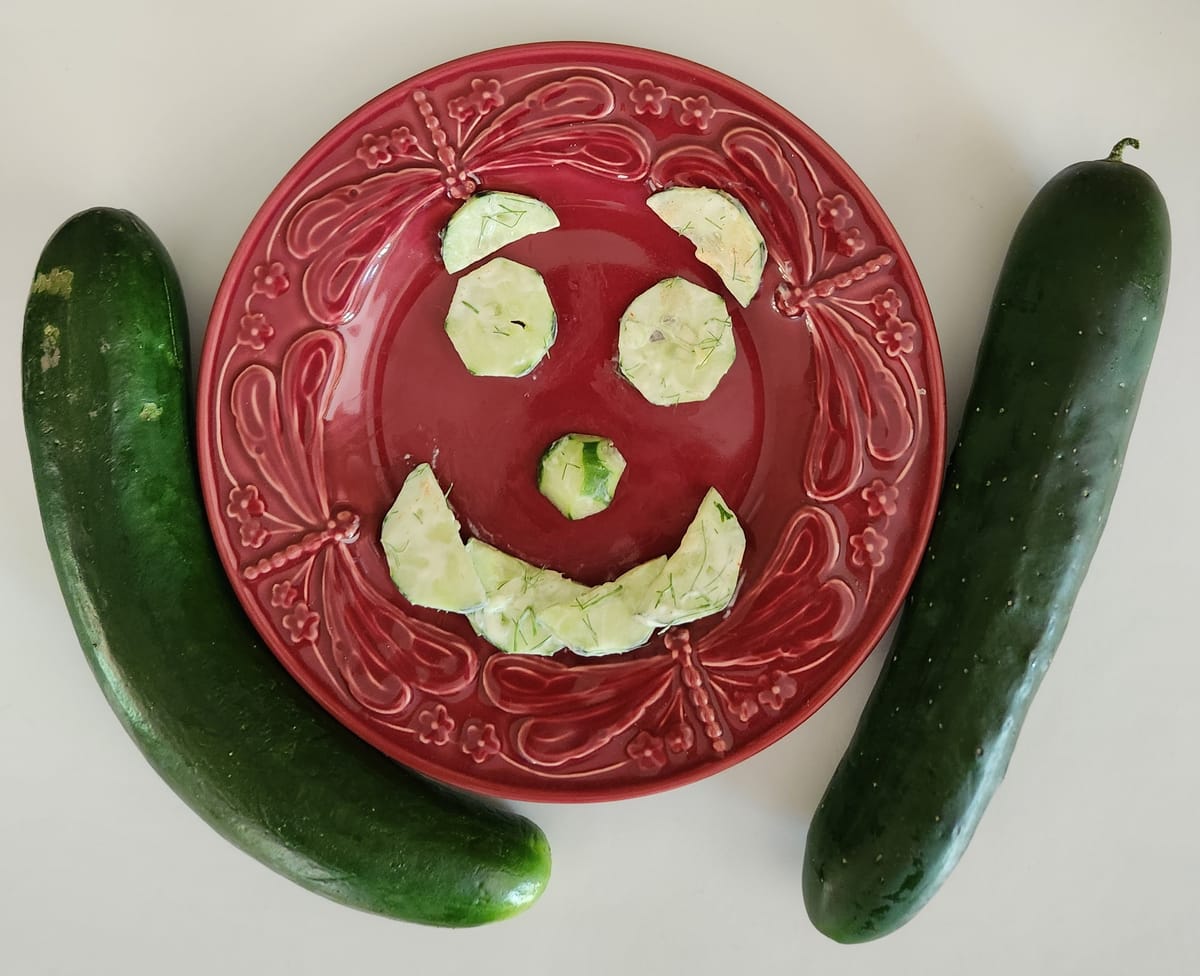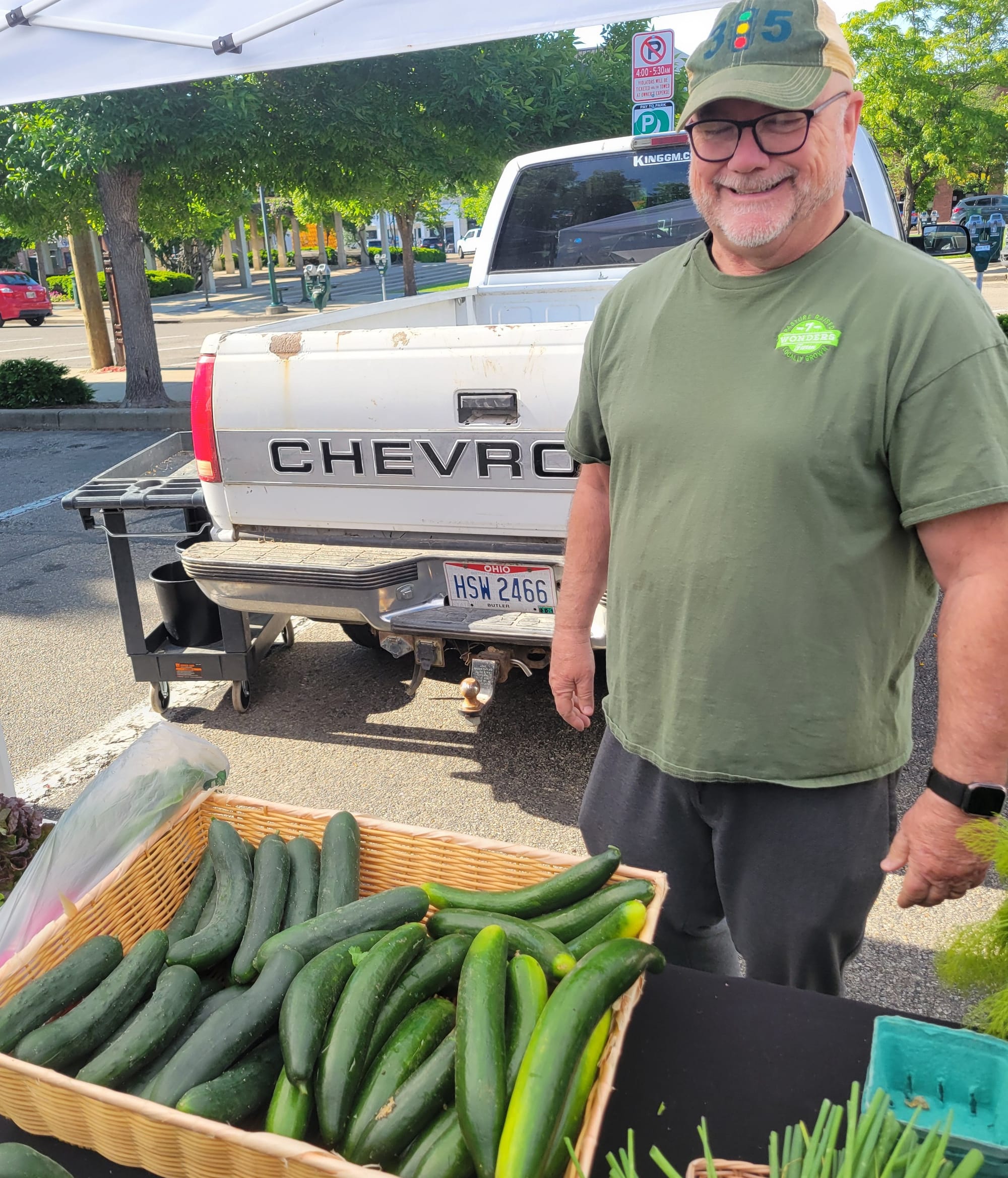On My Plate: Cucumbers
Cucumbers were brought to Haiti by Columbus in 1494, and were later embraced by Native Americans

As they wandered in the desert after the Exodus, roughly 3,500 years ago, the Israelites complained about the lack of availability of the foods they had enjoyed in Egypt. One food they missed was cucumbers, according to both traditional and modern English Bible translations (Numbers 11:5).
Cucumbers were first cultivated in the Himalaya Mountains of India some 5,000-6,000 years ago. Cultivation spread westward through ancient Egypt, Greece and Rome. Columbus brought cucumbers to Haiti in 1494, and European trappers carried them in the sixteenth century into the American interior, where they were embraced by some Native Americans.
On Aug. 22, 1663, Samuel Pepys wrote in his diary that the previous day, someone he knew died from eating cucumbers. Word quickly spread through England that cucumbers were poisonous, a belief that lingered until the late nineteenth century. Cucumbers became known in England as cowcumbers, fit to be eaten only by animals.
The phrase “cool as a cucumber,” meaning calm and relaxed under pressure, was first recorded by British poet John Gay in 1732, in a poem called “New Song on New Similes” that oddly referred to a lot of fruits and vegetables. The first line of Gay’s poem, for example, is “My passion is as mustard strong.” Here’s the third of Gay’s twenty stanzas: “Pert as a pear-monger I’d be, If Molly were but kind; Cool as a cucumber could see, The rest of womankind.”
Gay may have come to use the phrase because the British were expanding their colonization of India at the time. Believing that opposites cure, cool cucumbers were consumed during hot weather in India, and the ancient Romans applied cucumbers to the body to relieve fevers. A cucumber is composed of approximately 95% water, perhaps the highest percentage of water content of any food, so the interior is quite cool, but only if stored in a cool place until ready to use.
Cucumbers can be sliced, tossed in with lettuce and dressed with a vinaigrette, comprising 2 or 3 parts olive oil to 1 part vinegar. When served alone, cucumbers are most frequently served with a cream sauce.
Paris bistros typically slice the cucumbers into disks or half-moons, moisten with crème fraiche (a version made in Ohio is available at MOON Co-op Grocery) and top with chives, dill or parsley.

Raita, the popular Indian dish, calls for chopping the cucumber into small pieces before mixing with yogurt. My two Indian cookbooks both suggest adding cumin, coriander and pepper, but one also adds sugar and salt, and the other also adds garam masala (cardamom, cinnamon, cloves, nutmeg, pepper and mace). A thinner, more astringent yogurt, such as Bulgarian, is a better match with cucumber than the thicker sugary Greek varieties that are especially popular these days. Salt is widely used, especially in raita, to dry out the cucumber and extract the alleged bitterness, but I find that unnecessary with our local cucumbers.
By the way, the Biblical Hebrew word translated in English Bibles as cucumber is not the modern Hebrew word for cucumber. The Biblical word is actually the modern Hebrew word for zucchini. Cucumber and zucchini bear a physical resemblance, of course, but they have no botanical connection, and zucchini was unknown in the ancient Middle East. So we don’t know if the wandering Israelites were yearning for Egyptian cucumbers or for some other vegetable.
Several grocery stores recently recalled their cucumbers after a salmonella outbreak in some cucumbers grown in Florida. Our locally grown cucumbers aren’t impacted by the outbreak.
Anyway, stay cool as a cucumber this hot summer with local cucumbers.
James Rubenstein is president of the Board of Directors for the Oxford Free Press and professor emeritus of geography at Miami University.



![[clockwise from top] Tatsoi, Tokyo Bekana and Komatsuma.](/content/images/size/w720/2026/02/01-5.jpg)
